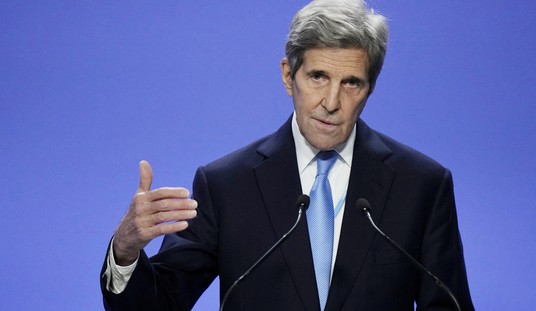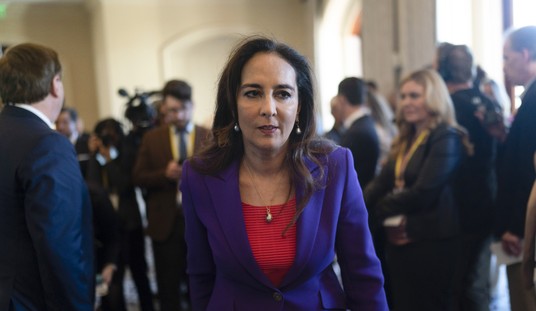Perhaps not satisfied with how the New Orleans field office handled the Bourbon Street terrorist attack on Wednesday, including initially saying it was "not a terrorist event," the FBI flew in a bigwig on Thursday to brief the public. In doing so, additional details were released, including the bureau's determination that there was no "definitive link" between the attack in New Orleans and the Cybertruck bomber in Las Vegas and that they believe the former acted alone.
RELATED: New Video and Details Emerge About Cybertruck Bomber in Las Vegas
I think most people won't believe that. But just like Adolf Hitler drinking water doesn't make water bad, just because the FBI says something doesn't mean it must be false. In this case, I think their assessment is probably correct, though not for the reason the FBI might prefer. I'll get to that part, but first, let's look at circumstantial connections and why, at least knowing what we know now, I'm not convinced the two attackers were linked.
Both men rented their vehicles from the TURO app, which is a popular service that allows people to rent their cars out short-term the same way they would a house or apartment. At first blush, that seems suspicious, but the app is very popular in the United States and has grown exponentially over the last three years. If someone wants to rent a Cybertruck or a Ford Lightning, TURO is one of the only options.
So why would both men want those specific trucks? In the case of the Bourbon Street attacker, it's very possible he calculated that the extra weight and immense torque of an electric truck would be more deadly. As to the Cybertruck that was blown up in front of Trump Hotel in Vegas, the political undertones are hard to miss given the connections to Elon Musk and Donald Trump. When you look at it that way, both trucks being electric doesn't seem quite as odd.
What about the fact that both served at Fort Bragg? That too is a rather large net to cast when trying to find a connection. Currently, over ten percent of active duty U.S. Army soldiers are stationed there, and a much higher percentage of soldiers will have passed through there by the end of their careers. In other words, that both men were stationed there at points in time doesn't say much, and there's been no evidence presented that the two men personally served together in any capacity. If anything, I think this speculated connection says more about the Army overall than any direct link garnered at Fort Bragg.
Then there's the day to consider. It is suspicious that both men carried out their attacks on the same day, but it's less suspicious than it otherwise would be given we are talking about New Year's Day, a prime target for terrorists because so many people are out in public celebrating. There's also the possibility that the Cybertruck bomber moved up his attack when he got news of the attack in New Orleans.
Now, let's talk about the parts of the attack that give me real pause in assuming a connection. For one, the attacks themselves were not similar. In New Orleans, there is no doubt that was meant to be a mass casualty event, killing as many people as possible. If that was the Cybertruck bomber's intent, he had far better targets, including at the Trump Hotel, than parking under a mostly empty awning and detonating. Even if you assume the blast was somewhat contained by the Cybertruck's steel construction, the choice of target area still makes little sense if the goal was to kill as many people as possible in the name of ISIS. Why not ram it into the lobby? Or into the hundreds of pedestrians mulling about?
Consider the Cybertruck bomber's background as well. Within hours, we not only had hard evidence that the Bourbon Street terrorist was ISIS, but his own family had come out and confirmed that he had converted to Islam and gone crazy. With the Cybertruck bomber, he was an active-duty special forces member on leave from Germany who seemingly had a happy family life. There has been no evidence presented connecting him to Islamism in any form. Was he suicidal? That seems like a strong possibility, but it doesn't add up to him joining ISIS while trying to kill as many people as he could.
So if the two men weren't connected, and we know the motive of the New Orleans attacker, then what was the Cybertruck bomber's motive? Again, I don't think you can ignore the political overtones of blowing up an Elon Musk-built truck in front of a Trump property. His actions look much more like secular left-wing extremism trying to send a political message about the incoming administration than ISIS terrorism.
Here's where things take a different turn, and I want to be clear this is speculative. The Cybertruck bomber was not only a big supporter of Ukraine, but he had previously helped recruit fighters for the war. Normally, that wouldn't be much of a red flag, but past events make it more so in the current political climate.
One of the men who tried to assassinate Donald Trump was also a rabid supporter of Ukraine, painting himself as a go-between for delivering aid to the war-stricken country. In other words, attacking Donald Trump over Ukraine, either directly or symbolically, has become a bit of a cause du jour for left-wing extremists. Further, we know that the Cybertruck bomber's wife was very anti-Trump, which makes it probable he was as well. So a possible motive exists outside of ISIS.
Wrapping this up, if you're asking me what's more likely given everything I've just laid out, I think it's more likely the Cybertruck bomber wanted to send a political message about Musk and Trump than blow himself up in the name of Islamic terrorism. Of course, I could be completely wrong so we'll have to wait and see how this all plays out.














Join the conversation as a VIP Member